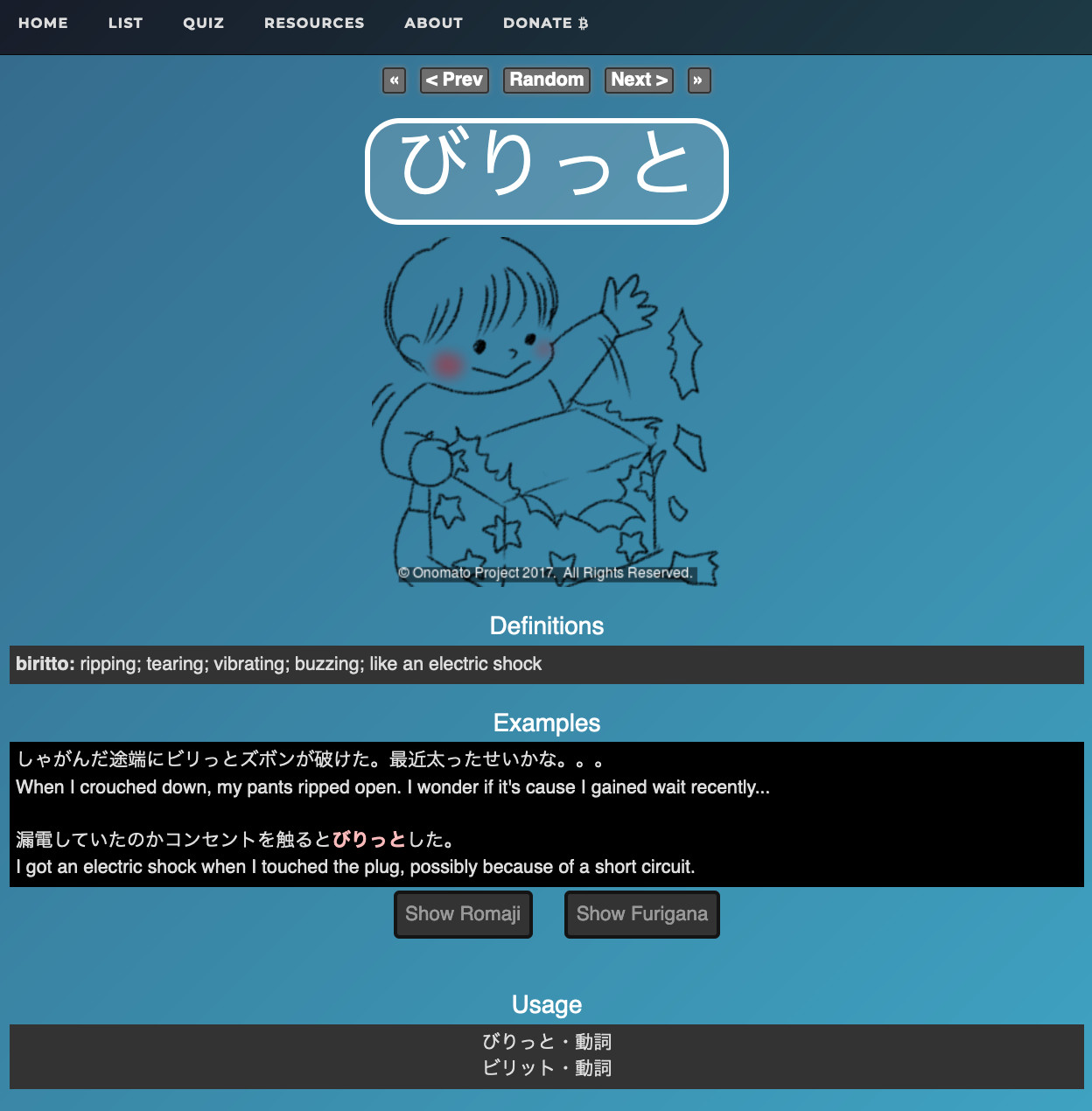
While studying Japanese, you may have come across some unusual words that seem to describe a feeling or sound in a way that's difficult to translate into English. Words like ガチャガチャ — the sound of a clatter, or ぽかぽか, which describes a pleasantly warm feeling. These words, both 擬音語 (a word that mimics a sound) and 擬態語 (a word that describes a condition or sensation) are broadly grouped under the umbrella of オノマトペ, or onomatopoeia words.
While onomatopoeia is not nearly as important in English, their wide and culturally specific use in Japanese make them an integral part of the language. They can also be quite tricky for Japanese learners to fully wrap their heads around with different categories of sound that depend on an object’s weight, size, and composition among lots of other factors. Thankfully, Onomato Project is here to help!
Onomato Project is an online compendium of many of the most common onomatopoeia words and their definitions. The main page has a list of words that each link to their own page containing English definitions, example sentences, and some advice on usage. Many of the entries also have cute illustrations that help to get the point across. While the site isn't quite comprehensive, as it's missing a few of the high-use オノマトペ such as ごちゃごちゃ, the list it offers is quite large and encompasses a wide range of sounds and senses.